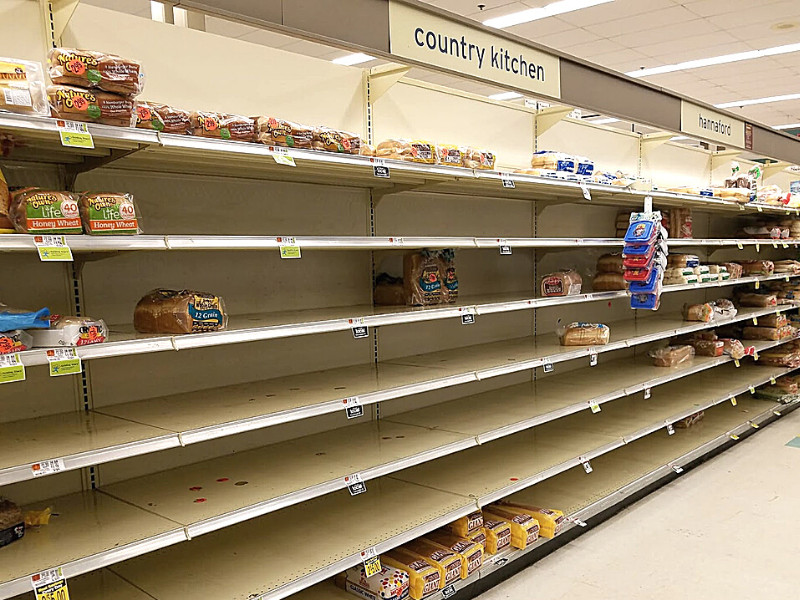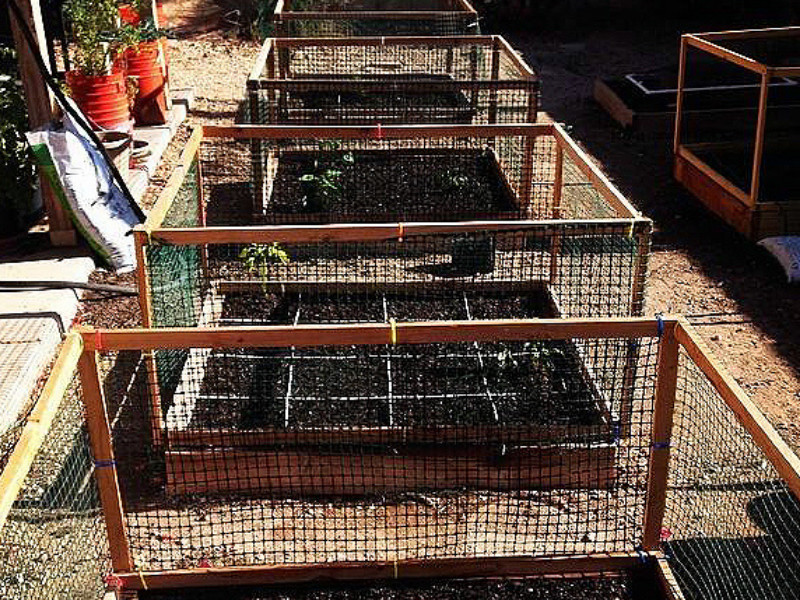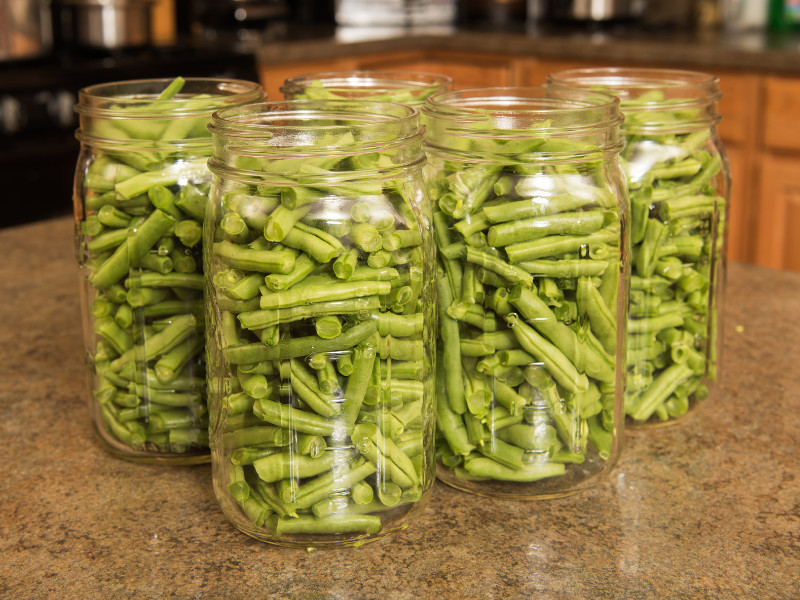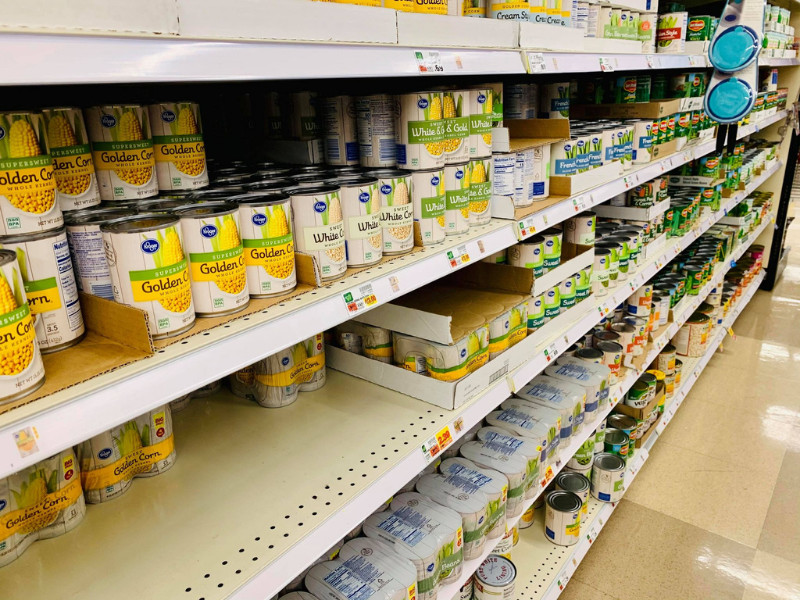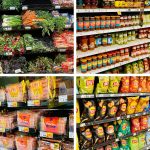Do you have concerns over a lack of available food in grocery stores? If the year 2020 taught us one thing, food shortages could still happen, even in 2021. Being prepared for potential food shortages is the best way to protect yourself and your loved ones from hunger and rising food prices.
If you begin to build an inventory of different foods you can eat during emergencies, you can avoid going hungry during a shortage. The steps you take now can save you and your family in the future.
Use these tips to learn how to prepare for food shortages and food insecurity.
Plant a Garden on Your Property
Start planting a garden on your property. Whether you have a lot of space or not, certain vegetables are relatively easy to grow. If you have access to vegetables and even some fruits on your property, you will stress a lot less.
When the food supply chain is broken and shortage occurs in the grocery stores, you would still have essential healthy food items to consume for the time being.
Potatoes
Potatoes are surprisingly easy to grow and, with the right care, can be stored for several months. Potatoes are versatile in their use and are very filling.
You want to keep potatoes even longer, they can be frozen and canned.
If you are in a warm climate I would also suggest growing sweet potatoes.
How to Grow Potatoes Anywhere
Grow Sweet Potatoes
How To Prepare Garden Potatoes for Long Term Storage
Carrots
Carrots are one of the easiest vegetables to grow. It is best to plant the carrot seeds during cooler weather at the beginning of spring and the beginning of autumn, depending on your area.
If you plant them at the end of summer, you can expect to have plenty of carrots available by the end of autumn. Once you have carrots, you can do a lot with them. You might want to roast them in the oven, steam them, and even add them to rice.
How to Preserve Carrots from Your Garden
Tomatoes
Much like carrots, tomatoes tend to grow with ease. Even if you are new to gardening, you can successfully grow large tomatoes. Try to plant the seeds during the warmer months because that is when the tomatoes tend to thrive. It typically takes around two months to harvest tomatoes.
Growing Tomatoes At Home
Making Tomato Powder – a great way to preserve tomatoes in a small space.
Lettuce
Another good vegetable to grow in your garden is lettuce. It can grow rather quickly. There are times when lettuce grows to a full head in as little as 30 days. You can produce different lettuce varieties and use them to create salads with your fresh tomatoes.
How to Grow Lettuce in Your Backyard
Green Beans
Do not forget about growing green beans. Not only are they good for you, but they are also easy to grow. It does not take much effort to keep the green beans thriving throughout the year.
Start the Canning Process to Build an Inventory of Food
Besides starting a garden where you will grow assorted vegetables and fruits, you should consider canning to prepare for any potential food shortages that could occur.
If you start canning, you can create a stockpile of food that will last for years in the canning jars. The extended shelf life of canned foods could provide you with a sense of relief.
Start Canning Today
Water Bath Canning 101
Common Canning Mistakes
75 Free Canning Recipes
Jams
You can create some of your favorite jam recipes, add them to glass mason jars, and begin the canning process. It is always good to have jams available during a food shortage. You can use them to add flavor to different foods, including loaves of bread, oatmeal, and yogurt.
Pickles
Prepare pickles with fresh cucumbers, vinegar, and other ingredients. You can start canning these pickles and keep them on shelves in your basement until you need them.
Pickling Recipes You Will Love That Do Not Use Cucumbers
Meats
It is even possible to start canning different types of meats. Some of the best meats for canning include sausages, beef, and pork.
How and Why You Should Stock Up on Meat
How to Freeze Meat
Collect Non-Perishable Food Items While on Sale
Make it a priority to start gathering non-perishable food items while they are on sale. You can check weekly advertisements to see which stores have the best deals on items that will come in handy.
Not sure when to buy? See my What to Stock Up on Each Month Series.
Not sure which non-perishable food items are best to collect? Consider some of the following options and be sure to read my article on the Best Foods to Buy in Bulk.
Peanut Butter
Peanut butter is a great food item to purchase in advance. It has a long shelf life, tastes delicious, and is an excellent source of protein. Even if you did not have access to many other foods, having peanut butter at home during a food shortage could genuinely help.
Tea Bags
If you do not want to get stuck drinking water all the time, collect tea bags while they are on sale. They have an extremely long shelf life and will allow you to make warm, soothing cups of hot tea when you want or need it.
Canned Meats
Many canned portions of meat have a long shelf life. While you can complete the canning process for different types of meats, you can also buy some pre-canned meats at your local grocery store.
Assorted Nuts
Nuts have a long shelf life and are good to have during a food shortage. Peanuts, almonds, cashews, and pecans are just four of the many options to consider collecting. Nuts are an excellent source of protein and fiber, making them great to have during an emergency.
Non-Perishable Food for Food Security
These are only a handful of the non-perishable food items worth collecting. There are plenty of other great foods worth buying and saving in your basement. You never know when these foods will get put to good use.
Buy Meats in Bulk and Keep the Meats in Your Freezer
Try to buy meat in bulk while they are on sale. You can remove the meats from the original packaging, separate them into serving sizes, and put them in freezer bags.
Once you sort through the meat, you can put it in your freezer to keep it fresh. You might even want to consider buying a deep freezer. If you have a deep freezer, you will have plenty of space to start saving meats and other frozen goods.
Food shortages can happen anywhere. The last thing you want to deal with is a lack of food when you have a family at home. If you would like to make sure you and your loved ones have food to eat no matter what, follow the tips mentioned above.
How to Prepare for Food Shortages
You can start a garden full of vegetables and fruits, start the canning process, and even buy meat in bulk before freezing it. Collecting foods and creating an impressive inventory of non-perishable items is the best way to avoid starvation during a significant food shortage.
Tell us how you have learned how to prepare for food shortages.
